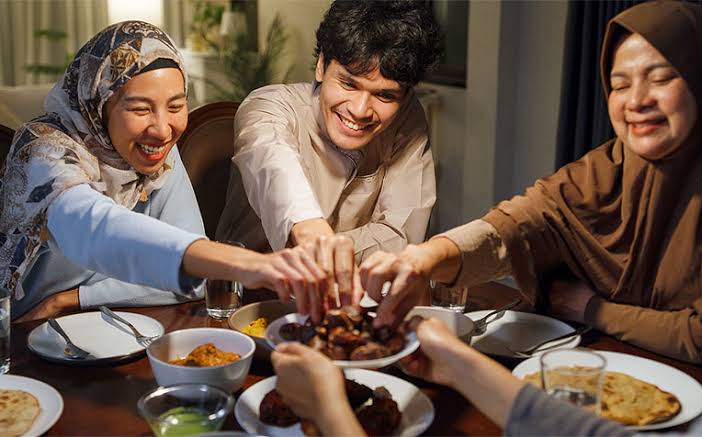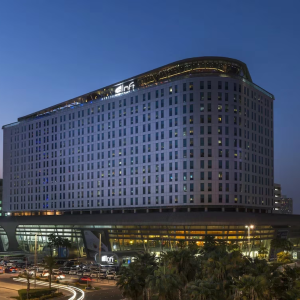As the city of Raipur buzzes with activity, the Muslim community comes together each evening during Ramadan for Iftar, the sacred meal that ends the day’s fast. This moment is not just about replenishing the body but also about nourishing the soul, fostering connections, and strengthening faith. Let’s delve into the essence of Iftar, its traditions, and today’s specific timing for those observing in Raipur.
Iftar :The Significance of Iftar During Ramadan

Ramadan, the ninth month of the Islamic lunar calendar, is a time of intense devotion, self-discipline, and spiritual growth for Muslims worldwide. Fasting from dawn (Suhoor) to sunset (Iftar) is one of the Five Pillars of Islam, symbolizing submission to God and solidarity with those less fortunate.
Iftar is not merely about breaking the fast; it’s a sacred ritual that reflects gratitude and patience. Every evening, millions of Muslims pause to acknowledge the blessings they have been given, from the simplest piece of bread to the support of family and friends. This meal is a celebration of faith, resilience, and togetherness.

Why Accurate Timing Matters for Iftar
The precise timing of Iftar is deeply significant for those observing the fast. Fasting begins before dawn with Suhoor and ends with Iftar at sunset. Adhering to these times is crucial, as they are dictated by the movement of the sun and hold spiritual importance.

Breaking the fast even a minute early is considered invalid, while extending it unnecessarily may burden the individual. The discipline required to follow the timing reflects the core values of Ramadan: obedience, patience, and devotion. Today, December 23, 2024, the Iftar time in Raipur is at 5:31 PM for those following the Hanafi school of thought, while the Jafria community observes Iftar at 5:41 PM. Observing these specific times helps maintain the sanctity and authenticity of the fast.
Preparing for Iftar in Raipur
The moments leading up to Iftar are often a mix of anticipation and reflection. In Raipur, households brim with activity as families prepare a spread of delicious and nourishing dishes to break the fast. The preparation itself becomes a form of worship, as family members contribute to creating an environment of love and gratitude.
A typical Iftar meal begins with dates and water, as per the Prophet Muhammad’s tradition. Dates provide an instant energy boost and are a natural way to rehydrate the body after a day of fasting. After this, the table is filled with a variety of dishes tailored to local tastes and traditions.
In Raipur, the menu often includes flavorful options like samosas, pakoras, kebabs, and chole bhature. Fresh fruits, refreshing drinks like Rooh Afza, and traditional sweets such as kheer or phirni add a touch of indulgence to the meal. Each bite is savored with a sense of thankfulness, making Iftar a cherished moment of the day.
The Spiritual Dimensions of Iftar
While the food served during Iftar is important, the spiritual essence of this time goes beyond the meal itself. Muslims around the world use this time to recite prayers, seek forgiveness, and reflect on their relationship with God. The Maghrib prayer, offered immediately after breaking the fast, serves as a bridge between the physical and spiritual realms, reminding individuals of the purpose behind their fasting.
Fasting during Ramadan is not just about abstaining from food and drink but also from negative actions, thoughts, and words. Iftar serves as a moment of renewal, encouraging individuals to continue their day’s efforts in kindness, patience, and humility.
Community Bonding Through Iftar
Iftar is a deeply personal experience, but it also has a communal aspect that brings people together. Across Raipur, mosques and community centers host Iftar gatherings open to all. These events are vibrant and inclusive, creating an atmosphere of shared faith and unity.
Community Iftars often begin with a short sermon or prayer, reminding attendees of the significance of Ramadan and encouraging acts of charity. Plates are filled with love and generosity as neighbors, friends, and even strangers share a meal. Such gatherings exemplify the spirit of Ramadan, which emphasizes compassion and the importance of supporting one another.
In recent years, the concept of hosting interfaith Iftar dinners has gained popularity. These events invite individuals from different religious and cultural backgrounds to experience the traditions of Ramadan, fostering mutual respect and understanding. In a diverse city like Raipur, such initiatives play a vital role in building harmony and breaking down barriers.
Health Benefits of Fasting and Iftar
Fasting during Ramadan offers several health benefits, provided the meals at Suhoor and Iftar are balanced and nutritious. Abstaining from food and drink during the day gives the digestive system a rest, while breaking the fast with wholesome foods helps replenish energy and nutrients.
Doctors and nutritionists recommend beginning Iftar with light and hydrating options, such as dates, water, and fruit. This practice not only aligns with tradition but also aids digestion. Including a mix of proteins, healthy fats, and complex carbohydrates ensures that the body receives the nourishment it needs to recover and prepare for the next day’s fast.
However, overeating or consuming heavy, fried foods can lead to discomfort and fatigue. Moderation is key, and mindful eating enhances the spiritual benefits of Ramadan by encouraging gratitude for the sustenance provided.
Traditions Unique to Raipur
Raipur, with its rich cultural tapestry, adds its own flavor to Ramadan and Iftar traditions. Local dishes infused with spices and flavors unique to the region are a highlight of Iftar meals. Vendors selling street food and sweet treats create a lively atmosphere, as families and friends gather to share their blessings.
The city’s mosques play a central role during Ramadan, with many hosting not just Iftar but also Taraweeh prayers and Quran recitation sessions. These activities provide opportunities for spiritual enrichment and foster a sense of belonging within the community.
Reflecting on Gratitude and Generosity
Ramadan is a time to give back, and Iftar provides an ideal opportunity to practice generosity. Many families in Raipur prepare extra food to distribute to those in need, ensuring that everyone has the chance to enjoy a fulfilling meal. Acts of charity, whether through food donations or financial contributions, amplify the blessings of Ramadan and remind individuals of their responsibility toward others.
The essence of Iftar lies in gratitude—for the meal before you, the family beside you, and the faith that guides you. As the day transitions into evening, the simple act of breaking the fast becomes a profound moment of connection with God and with the community.
Conclusion
As you prepare to break your fast today in Raipur, take a moment to reflect on the deeper meaning of Iftar. It is not just about ending your hunger; it is a celebration of patience, gratitude, and togetherness. The specific Iftar timing—5:31 PM for Hanafi and 5:41 PM for Jafria—serves as a reminder of the discipline and devotion that define Ramadan.
Whether you’re surrounded by family, sharing a meal at a community gathering, or quietly reflecting on your own, Iftar is a time to be thankful for the blessings in your life. May this evening bring you peace, fulfillment, and a renewed sense of purpose.














